Fleurs du Mal Magazine


Or see the index

Peggy
My Peggy is a young thing,
Just enter’d in her teens,
Fair as the day, and sweet as May
Fair as the day, and always gay.
My Peggy is a young thing,
And I’m not very auld,
Yet well I like to meet her at
The Wawking of the Fauld.
My Peggy speaks sæ sweetly,
When’er we meet alane,
I wish næ mair to lay my care,
I wish næ mair of a’ that’s rare.
My Peggy speaks sæ sweetly,
To a’ the lave I’m cauld;
But she gars a’ my spirits glow
At Wawking of the Fauld.
My Peggy smiles sæ kindly,
Whene’er I whisper Love,
That I look down on a’ the Town,
That I look down upon a Crown.
My Peggy smiles sæ kindly,
It makes my blythe and bauld,
And naithing gi’es me sic delight,
As Wawking of the Fauld.
My Peggy sings sæ saftly,
When on my pipe I play;
By a’ the rest it is confest,
By a’ the rest, that she sings best.
My Peggy sings sæ saftly,
And in her songs are tald,
With innocence the wale of Sense,
At Wawking of the Fauld.
Allan Ramsay
(1684-1758)
Peggy
• fleursdumal.nl magazine
More in: # Classic Poetry Archive, Archive Q-R, Archive Q-R

The author’s address to
The Town Council of Edinburgh
Your poet humbly means and shaws.
That, contrair to just rights and laws,
I’ve suffer’d muckle wrang.
By Lucky Raid * and ballad-singers,
Wha thumb’d with their coarse dirty fingers
Sweet Adie’s funeral sang.
They spoil’d my sense, and staw my cash.
My muse’s pride murgully’d ;
And printing it like their vile trash.
The honest lieges whilly’d.
Allan Ramsay
(1684-1758)
The author’s address to The Town Council of Edinburgh
* A printer’s relict, who, with the hawkers, reprinted my pastoral on Mr. Addison, without my knowledge, on ugly paper, full of errors.
• fleursdumal.nl magazine
More in: # Classic Poetry Archive, Archive Q-R, Archive Q-R
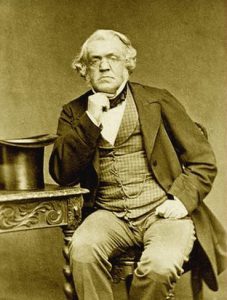
Sorrows of Werther
WERTHER had a love for Charlotte
Such as words could never utter;
Would you know how first he met her?
She was cutting bread and butter.
Charlotte was a married lady,
And a moral man was Werther,
And for all the wealth of Indies
Would do nothing for to hurt her.
So he sigh’d and pin’d and ogled,
And his passion boil’d and bubbled,
Till he blew his silly brains out,
And no more was by it troubled.
Charlotte, having seen his body
Borne before her on a shutter,
Like a well-conducted person,
Went on cutting bread and butter.
William Makepeace Thackeray
(1811–63)
Sorrows of Werther
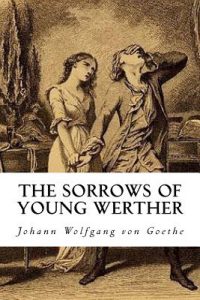
• fleursdumal.nl magazine
More in: # Classic Poetry Archive, -Die Leiden des jungen Werther, Archive S-T, Archive S-T
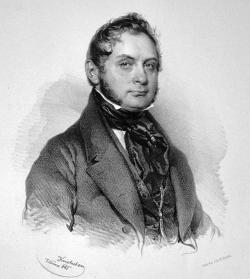
Venedig
Ich bin so krank und sterben möcht’ ich gerne
Hier in Venedig, und begraben liegen
In dieser Flut, dem Ruheplatz der Sterne!
In jeder Nacht pfleg’ ich mich drauf zu wiegen,
Und ihrer Tiefe schwärzeste Geschichten
Behorch’ ich dann mit schaurigem Vergnügen. –
Beschloß der Rat der Drei, geheim zu richten
Ein Opfer, des Geschrei’s im Volke wegen,
Und galt’s ein schnell und spurenlos Vernichten:
Da glitt um Mitternacht, dem Mond entgegen,
Die Gondel aus der Seufzerbrücke Schatten,
So schwarz und still, wie alle Gondeln pflegen.
Und lautlos durch Galeeren und Fregatten
Kroch sie hindurch, bis wo des Meeres Enge
Sich dehnt zu breiteren, smaragdnen Matten.
Dort hielt sie still. Dann aber war’s, als sprenge
Ein dumpfer Fall die kaum bewegte Fläche,
Und leise Kreise zitterten in Menge.
Auch war’s den Schiffern, die im Nachtgespräche
An Lido’s Ufern stellten ihre Stricke,
Als ob ein Schrei im Wellenschlag zerbräche.
Die stille Gondel aber schwamm zurücke,
Wie sie gekommen, spurlos und verborgen,
Und schwand im Schattenstreif der Seufzerbrücke:
Doch der Verbrecher starb am andern Morgen.
Moritz von Strachwitz
(1822 – 1847)
Venedig
Moritz Karl Wilhelm Graf von Strachwitz (1822-1847), deutscher Dichter
Lithographie von Josef Kriehuber, 1841
• fleursdumal.nl magazine
More in: # Classic Poetry Archive, Archive S-T, Archive S-T
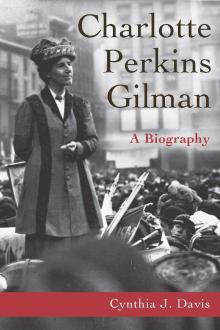
She who is to come
A woman–in so far as she beholdeth
Her one Beloved’s face;
A mother–with a great heart that enfoldeth
The children of the Race;
A body, free and strong, with that high beauty
That comes of perfect use, is built thereof;
A mind where Reason ruleth over Duty,
And Justice reigns with Love;
A self-poised, royal soul, brave, wise and tender,
No longer blind and dumb;
A Human Being, of an unknown splendor,
Is she who is to come!
Charlotte Perkins Gilman
(1860-1935)
She who is to come
Suffrage Songs and Verses
• fleursdumal.nl magazine
More in: # Classic Poetry Archive, Archive G-H, Archive G-H, Feminism
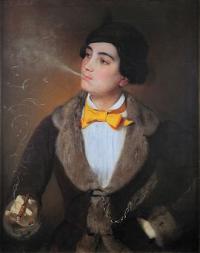
Dithyrambe
Glücklich, wem der Gott der Reben
Seine süßen Gaben beut,
Hüllend um das ganze Leben
Selige Vergessenheit!
Alle finstern Geister weichen,
Aller Fesseln sind wir los,
Herrscher in des Traumes Reichen,
Fühlt der Geist sich frei und groß.
Fort, mit deinen bleichen Zügen,
Träumende Erinnerung!
Deinen Zauber zu betrügen,
Fühl’ ich mächtig mich und jung!
Heiliger Entzückung Gluten
Fach’ ich in der Seele an;
Möchte frei das All’ umfluten,
Wie der alte Ocean!
Stürmt empor, ihr Jugendgeister!
Tanzt um mich in frohen Reih’n!
Immer frischer, immer dreister,
Stürzt ins Leben euch hinein!
Fluch den fremden, starren Mächten,
Die der Menschen Sinn betört;
Die uns martern, die uns knechten,
Die mein ganzes Sein zerstört!
Mächt’ger Gott der süßen Reben,
Spende mir Vergessenheit!
Schenke mir ein neues Leben,
Voll Genuß und Seligkeit!
Schlagt die Gläser all’ in Scherben:
So vergeh’ die alte Welt!
So mag sterben und verderben,
Was das Herz in Fesseln hält!
Louise Aston
(1814-1871)
Die wilde Rose
• fleursdumal.nl magazine
More in: # Classic Poetry Archive, Archive A-B, Archive A-B, Feminism

Verwunschene
In den Armen der Mühle hängen
die bleichen Verwunschenen
Drehen langsam den Stein des Brotes,
Unendlich geduldig.
Rings im Lande jagen die Prasser,
Aber die bleichen Verwunschenen
Mahlen unendlich geduldig das Korn.
Fängt ein Sturm ihre langen Ärmel
Sinken sie stumm in die heilige Erde.
Schicken von neuem bleiche Gesellen
Den Armen der Mühle
Geduldig, unendlich,
Verwunschen.
Bess Brenck-Kalischer
(Betty Levy, 1878-1933)
Verwunschene
• fleursdumal.nl magazine
More in: # Classic Poetry Archive, Archive A-B, Archive A-B
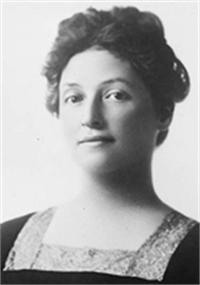
The Foundling
Beautiful Mother, I have toiled all day;
And I am wearied. And the day is done.
Now, while the wild brooks run
Soft by the furrows–fading, gold to gray,
Their laughters turned to musing–ah, let me
Hide here my face at thine unheeding knee,
Beautiful Mother; if I be thy son.
The birds fly low. Gulls, starlings, hoverers,
Along the meadows and the paling foam,
All wings of thine that roam
Fly down, fly down. One reedy murmur blurs
The silence of the earth; and from the warm
Face of the field the upward savors swarm
Into the darkness. And the herds are home.
All they are stalled and folded for their rest,
The creatures: cloud-fleece young that leap and veer;
Mad-mane and gentle ear;
And breath of loving-kindness. And that best,–
O shaggy house-mate, watching me from far,
With human-aching heart, as I a star–
Tempest of plum’d joys, just to be near!
So close, so like, so dear; and whom I love
More than thou lovest them, or lovest me.
So beautiful to see,
Ah, and to touch! When those far lights above
Scorch me with farness–lights that call and call
To the far heart, and answer not at all;
Save that they will not let the darkness be.
And what am I? That I alone of these
Make me most glad at noon? That I should mark
The after-glow go dark?
This hour to sing–but never have–heart’s-ease!
That when the sorrowing winds fly low, and croon
Outside our happy windows their old rune,
Beautiful Mother, I must wake, and hark?
Who am I? Why for me this iron Must?
Burden the moon-white ox would never bear;
Load that he cannot share,
He, thine imperial hostage of the dust.
Else should I look to see the god’s surprise
Flow from his great unscornful, lovely eyes–
The ox thou gavest to partake my care.
Yea, all they bear their yoke of sun-filled hours.
I, lord at noon, at nightfall no more free,
Take on more heavily
The yoke of hid, intolerable Powers.
–Then pushes here, in my forgetful hand,
This near one’s breathless plea to understand.
Starward I look; he, even so, at me!
And she who shines within my house, my sight
Of the heart’s eyes, my hearth-glow, and my rain,
My singing’s one refrain–
Are there for her no tidings from the height?
For her, my solace, likewise lost and far,
Islanded with me here, on this lone star
Washed by the ceaseless tides of dark and light.
What shall it profit, that I built for her
A little wayside shelter from the stark
Sky that we hear, and mark?
Lo, in her eyes all dreams that ever were!
And cheek-to-cheek with me she shares the quest,
Her heart, as mine for her, sole tented rest
From light to light of day; from dark–till Dark.
Yea, but for her, how should I greatly care
Whither and whence? But that the dark should blast
Our bright! To hold her fast,–
Yet feel this dread creep gray along the air.
To know I cannot hold her so my own,
But under surge of joy, the surges moan
That threaten us with parting at the last!
Beautiful Mother, I am not thy son.
I know from echoes far behind the sky.
I know; I know not why.
Even from thy golden, wide oblivion:
Thy careless leave to help thy harvesting,
Thy leave to work a little, live, and sing;
Thy leave to suffer–yea, to sing and die,
Beautiful Mother! …
Ah, Whose child am I?
Love sang to me. And I went down the stair,
And out into the darkness and the dew;
And bowed myself unto the little grass,
And the blind herbs, and the unshapen dust
Of earth without a face. So let me be.
For as I hear, the singing makes of me
My own desire, and momently I grow.
Yea, all the while with hands of melody,
The singing makes me, out of what I was,
Even as a potter shaping Eden clay.
Ever Love sings, and saith in words that sing,
‘Beloved, thus art thou; and even so
Lovely art thou, Beloved!’–Even so,
As the Sea weaves her path before the light,
I hear, I hear, and I am glorified.
Love sang to me, and I am glorified
Because of some commandment in the stars.
And I shall grow in favour and in shining,
Till at the last I am all-beautiful;
Beautiful, for the day Love sings no more.
Josephine Preston Peabody
(1874 – 1922)
The Foundling
• fleursdumal.nl magazine
More in: # Classic Poetry Archive, Archive O-P, Archive O-P
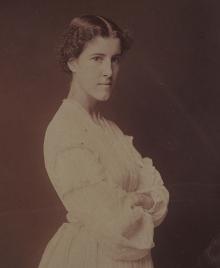
Girls of to-day
Girls of today! Give ear!
Never since time began
Has come to the race of man
A year, a day, an hour,
So full of promise and power
As the time that now is here!
Never in all the lands
Was there a power so great,
To move the wheels of state,
To lift up body and mind,
To waken the deaf and blind,
As the power that is in your hands!
Here at the gates of gold
You stand in the pride of youth,
Strong in courage and truth,
Stirred by a force kept back
Through centuries long and black,
Armed with a power threefold!
First: You are makers of men!
Then Be the things you preach!
Let your own greatness teach!
When Mothers like this you see
Men will be strong and free–
Then, and not till then!
Second: Since Adam fell,
Have you not heard it said
That men by women are led?
True is the saying–true!
See to it what you do!
See that you lead them well.
Third: You have work of your own!
Maid and mother and wife,
Look in the face of life!
There are duties you owe the race!
Outside your dwelling-place
There is work for you alone!
Maid and mother and wife,
See your own work be done!
Be worthy a noble son!
Help man in the upward way!
Truly, a girl today
Is the strongest thing in life!
Charlotte Perkins Gilman
(1860-1935)
Girls of to-day
Suffrage Songs and Verses
• fleursdumal.nl magazine
More in: # Classic Poetry Archive, Archive G-H, Archive G-H, Feminism

La pluie
Enfin la haute Providence
Qui gouverne à son gré le temps,
Travaillant à notre abondance
Rendra les laboureurs contents :
Sus ! que tout le monde s’enfuie,
Je vois de loin venir la pluie,
Le ciel est noir de bout en bout
Et ses influences bénignes
Vont tant verser d’eau sur les vignes
Que nous n’en boirons point du tout.
L’ardeur grillait toutes les herbes,
Et tel les voyait consumer
Qui n’eût pas cru tirer des gerbes
Assez de grain pour en semer.
Bref, la terre, en cette contrée,
D’une béante soif outrée,
N’avait souffert rien de pareil
Depuis qu’une audace trop vaine
Porta le beau fils de Climène
Sur le brillant char du soleil.
Mais les dieux mettant bas les armes
Que leur font prendre nos péchés,
Veulent témoigner par des larmes
Que les nôtres les ont touchés :
Déjà, l’humide Iris étale
Son beau demi-cercle d’opale
Dedans le vague champ de l’air
Et, pressant mainte épaisse nue,
Fait obscurcir à sa venue
Le temps qui se montrait si clair.
Ces pauvres sources épuisées
Qui ne coulaient plus qu’en langueur,
En tressaillent comme fusées
D’une incomparable vigueur ;
je pense, à les voir si hautaines,
Que les eaux de mille fontaines
Ont ramassé dedans ces lieux
Ce qui leur restait de puissance
Pour aller par reconnaissance
Au devant de celles des cieux.
Payen, sauvons-nous dans ta salle
Voilà le nuage crevé ;
O, comme à grands flots il dévale !
Déjà, tout en est abreuvé.
Mon Dieu ! Quel plaisir incroyable !
Que l’eau fait un bruit agréable
Tombant sur ces feuillages verts !
Et que je charmerais l’oreille
Si cette douceur non pareille
Se pouvait trouver en mes vers !
Çà, que l’on m’apporte une coupe :
Du vin frais, il en est saison ;
Puisque Cérès boit à la troupe,
Il faut bien lui faire raison !
Mais non pas avec ce breuvage
De qui le goût fade et sauvage
Ne saurait plaire qu’aux sablons
Ou à quelque jeune pucelle
Qui ne but que de l’eau comme elle
Afin d’avoir les cheveux blonds.
Regarde à l’abri de ces saules
Un pèlerin qui se tapit :
Le dégoût perce ses épaules
Mais il n’en a point de dépit.
Contemple un peu dans cette allée
Thibaut à la mine hâlée
Marcher froidement par compas ;
Le bonhomme sent telle joie
Qu’encore que cette eau le noie,
Si ne s’en ôtera-t-il pas.
Vois déjà dans cette campagne
Ces vignerons tout transportés
Sauter comme genets d’Espagne
Se démenant de tous côtés ;
Entends d’ici tes domestiques
Entrecouper leurs chants rustiques
D’un fréquent battement de mains ;
Tous les coeurs s’en épanouissent
Et les bêtes s’en réjouissent
Aussi bien comme les humains.
Marc-Antoine Girard de Saint-Amant
(1594 – 1661)
La pluie
• fleursdumal.nl magazine
More in: # Classic Poetry Archive, Archive G-H, Archive G-H, Archive S-T, Archive S-T
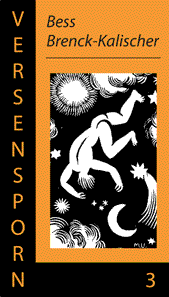
Das Auge flog voran
Das Auge flog voran.
Im Stern verstrickt der Fuß.
Die hingerissene Sonne
Sinkt im Spiegel.
Um jede Wassermühle
Blutet Licht.
Bess Brenck-Kalischer
(Betty Levy, 1878-1933)
Das Auge flog voran
• fleursdumal.nl magazine
More in: # Classic Poetry Archive, Archive A-B, Archive A-B
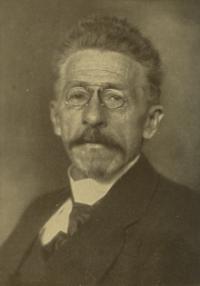
Ganz still zuweilen . . .
Ganz still zuweilen wie ein Traum
klingt in dir auf ein fernes Lied…
Du weißt nicht, wie es plötzlich kam,
du weißt nicht, was es von dir will…
und wie ein Traum ganz leis und still
verklingt es wieder, wie es kam…
Wie plötzlich mitten im Gewühl
der Straße, mitten oft im Winter
ein Hauch von Rosen dich umweht,
wie oder dann und wann ein Bild
aus längst vergessenen Kindertagen
mit fragenden Augen vor dir steht…
Ganz still und leise, wie ein Traum…
Du weißt nicht, wie es plötzlich kam,
du weißt nicht, was es von dir will,
und wie ein Traum ganz leis und still
verblaßt es wieder, wie es kam.
Cäsar Flaischlen
(1864-1920)
Ganz still zuweilen . . .
• fleursdumal.nl magazine
More in: # Classic Poetry Archive, Archive E-F, Archive E-F
Thank you for reading Fleurs du Mal - magazine for art & literature